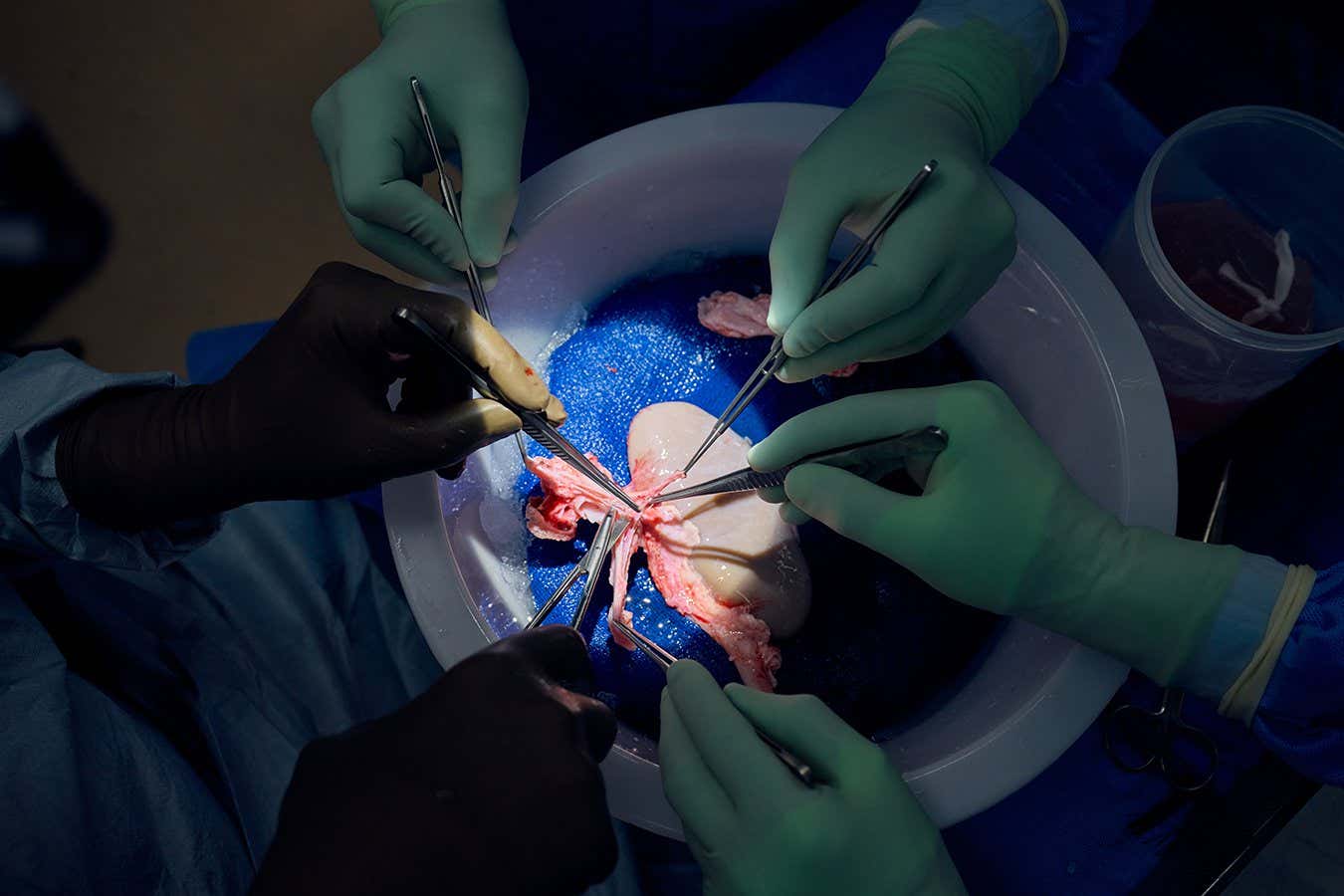A pig kidney that was genetically modified and transplanted into a recently deceased person has been functioning for over a month without any signs of rejection or infection. This breakthrough in xenotransplantation, the transfer of animal organs to humans, is a significant advancement. Researchers at NYU Langone Health in New York performed the transplant, marking the longest a pig kidney has ever functioned in a human.
This is the fifth pig-to-human kidney transplant to be performed, all of which were conducted on brain-dead individuals who were kept on life support. Full details of one of the previous transplants were also published today. The transplant, performed by Jayme Locke and her team at the University of Alabama at Birmingham, resulted in the kidney functioning for seven days, which was a record until now.
The most recent procedure took place on July 14th. Robert Montgomery and his colleagues at NYU Langone Health transplanted a pig kidney into Maurice Miller, a 57-year-old man who was declared brain dead after complications from a brain tumor biopsy. Miller’s family agreed to the experimental procedure after learning that he had an aggressive form of brain cancer that prevented him from donating his organs. Miller is being kept on life support until the study concludes.
The pig kidney used in the transplant was from a pig that was specially bred to lack a gene that produces a carbohydrate called alpha-gal. This carbohydrate is not found in humans and can cause our immune system to reject organs from other animals. To further reduce the risk of rejection, the researchers transplanted the pig’s thymus, a gland that helps the immune system distinguish between self and foreign cells, into Miller. He was also given immune-suppressing medications.
The transplanted kidney began producing urine immediately after the procedure. For the past 32 days, Miller’s blood levels of creatinine, a waste product cleared by the kidneys, have remained within the normal range, indicating proper kidney function. Biopsies of the organ have also shown no signs of rejection.
Previous concerns about xenotransplantation transmitting viruses between animals and humans have been addressed in this study. The researchers have been using a more sensitive test than in previous procedures to better detect any potential infections, but so far, they have not found any signs of infection.
The researchers plan to continue monitoring the kidney for another month before concluding the study. After two months, they will have surpassed the critical period when most non-human primates reject organs from pigs. This research will provide important information for future clinical trials.
The shortage of organ donors has made xenotransplantation a promising solution. In the US, over 100,000 people are awaiting organ transplants, and 17 of them die every day. This breakthrough in pig-to-human kidney transplantation brings hope to those in need.
“Though my brother cannot be here, I can say with confidence that he would be proud of the fact that in the tragedy of his death, his legacy will be helping many live,” said Maurice Miller’s sister during a press conference.








